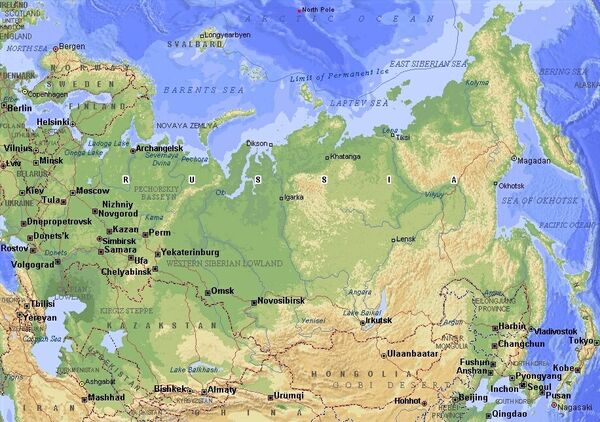MOSCOW, September 11 (RIA Novosti) - The vector of Russian interest is switching from Europe and the United States to Asia, a Canadian analyst said after a meeting with the Russian premier on Friday.
Piotr Dutkiewicz, director of the Institute of European and Russian Studies at the Carleton University (Ottawa, Canada) and a member of the Valdai Discussion Club, met with Vladimir Putin on the sidelines of the Valdai forum, and drew three main conclusions from the meeting.
"The main one is that this time he was very pragmatic in his approach to Europe, in his approach to the situation in the U.S.," Dutkiewicz said, describing Putin's approach as "non-ideological, very step-by-step."
His second impression was that "the vector of [Russia's] interest is switching from Europe and United States to Asia."
Russia made several attempts to collaborate with Europe on aerospace and high tech projects, but Europe was non-responsive. Instead, Russia is now successfully cooperating in these areas with India and Israel.
A Chinese political analyst welcomed Russia's Asian ambitions.
"It was very interesting to hear Putin's opinion on the development of the 'Eastern vector' in Russia's foreign policies. And Russia will develop the 'Western vector' as well," said Feng Shaolei, dean of the School of Advanced International and Area Studies at East China Normal University.
Shaolei, who also heads the Chinese Center for Russian Studies, praised this as "strategic thinking."
"Russia will be playing a very important role between the East and the West," the Chinese professor said.
The third conclusion drawn by Dutkiewicz was that Russia believes there is a need for a different kind of collective security arrangement.
"OSCE is not working properly," the Canadian professor quoted Putin as saying. "Unless we succeed in building a security framework that will satisfy everybody, we are going to create a dangerous environment," he said.
Overall, Dutkiewicz said, Putin "sounded like a manager."
"It was not political, it was a very administrative-like presentation," he said.




